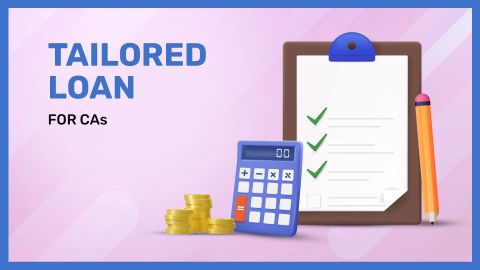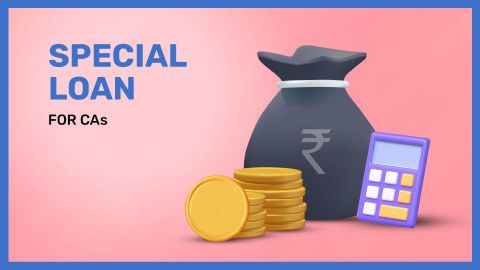Roles and responsibilities of a cost accountant
Cost accountants play a critical role in financial planning and operational control. Here are the key responsibilities of a cost accountant:
- Cost analysis and control: Assess cost structures and identify areas for cost reduction.
- Budget preparation: Assist in preparing detailed cost budgets and forecasts.
- Inventory valuation: Monitor stock levels and determine accurate inventory costs.
- Cost allocation: Allocate overheads and other indirect costs across departments or products.
- Performance evaluation: Analyse variances between actual and standard costs to assess performance.
- Support pricing decisions: Provide cost-based data to assist management in pricing strategies.
- Compliance and reporting: Ensure adherence to regulatory cost accounting standards and prepare financial reports.
Skills required to become a cost accountant
A successful cost accountant must possess both technical and analytical abilities. Here are the essential skills needed:
- Strong analytical thinking: Ability to interpret complex financial data and identify patterns.
- Attention to detail: Accuracy in data entry, calculation, and report preparation is crucial.
- Knowledge of accounting principles: Sound understanding of cost accounting and financial accounting standards.
- Proficiency in accounting software: Familiarity with tools like SAP, Oracle, and Excel is advantageous.
- Problem-solving skills: The capability to offer practical cost-saving solutions.
- Communication skills: Ability to present findings clearly to stakeholders.
- Time management: Efficient handling of multiple tasks and deadlines.
How to become a cost accountant?
To pursue a career as a cost accountant, candidates must follow a structured academic and professional path. Here are the steps to become a cost accountant:
- Complete your 10+2 education: Preferably with commerce or mathematics as core subjects.
- Enroll in the CMA programme: Register for the Cost and Management Accountancy (CMA) course offered by The Institute of Cost Accountants of India (ICMAI).
- Clear the three-level examination: CMA Foundation, CMA Intermediate, and CMA Final.
- Undertake practical training: Complete the required training/internship as per ICMAI guidelines.
- Obtain certification: After passing all levels and completing training, earn your CMA designation.
- Stay updated: Engage in continuous professional development to stay current with industry standards.
Benefits of becoming a cost accountant
A career in cost accounting offers both professional stability and long-term growth potential. Here are the advantages of this profession:
- Diverse industry opportunities: Cost accountants are in demand across manufacturing, FMCG, retail, logistics, and service sectors.
- Strong career progression: Opportunities to move into leadership roles such as cost controller or finance manager.
- Strategic involvement: Direct contribution to organisational planning and decision-making.
- Job stability: Growing focus on cost efficiency ensures continued demand for cost accountants.
- Lucrative salaries: Competitive pay scales with potential for higher earnings in senior positions.
- Professional recognition: CMA designation is highly regarded within the accounting and finance community.
Career growth opportunities for cost accountants
Cost accountants have multiple avenues for advancement based on experience and specialisation. Here are common career growth pathways:
- Cost controller: Manage and oversee an organisation’s entire cost structure.
- Financial analyst: Use cost data to perform a deeper financial analysis for strategic planning.
- Finance manager: Supervise broader financial operations, including budgeting and reporting.
- Chief Financial Officer (CFO): Attain senior-level leadership roles with extensive experience.
- Consultant: Offer independent advisory services to firms seeking cost optimisation.
- Academic or trainer: Pursue roles in teaching or corporate training in cost accounting principles.
Challenges faced by cost accountants
Despite the rewarding nature of the role, cost accountants encounter several challenges in their profession. Here are some common challenges:
- Data complexity: Handling large volumes of detailed cost data can be overwhelming.
- Cross-functional collaboration: Working with multiple departments may lead to communication gaps.
- Keeping up with regulations: Frequent updates in tax and accounting laws require constant learning.
- Pressure of accuracy: Minor errors in cost data can impact major financial decisions.
- Technological adaptation: Need to stay updated with evolving accounting systems and software.
- Meeting tight deadlines: Reporting cycles and audits often come with strict timelines.
Difference between cost accountant and financial accountant
While both roles are integral to financial management, their focus areas differ significantly.
| Aspect |
Cost Accountant |
Financial Accountant |
| Primary focus |
Internal cost control and resource optimisation |
Recording and reporting financial transactions |
| Objective |
Improve operational efficiency and reduce costs |
Ensure accurate financial statements and compliance |
| Reporting audience |
Internal management |
External stakeholders such as shareholders and auditors |
| Tools used |
Standard costing, marginal costing, budgeting |
General ledger, balance sheets, income statements |
| Decision support |
Supports pricing, budgeting, and cost planning |
Supports statutory reporting and financial analysis |
Conclusion
Cost accountants play a crucial role in driving cost efficiency and financial control across industries. Their expertise not only supports internal decision-making but also contributes to long-term business sustainability. For professionals considering a career in this domain, the opportunities are diverse and promising.
Flexible CA Loans for cost accountants
If you’re planning to upskill or expand your financial practice, consider applying for a CA loan or a professional loan. It offers flexible tenures and collateral-free funding to support your professional goals.





